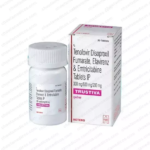Introduction
Cancer remains one of the most formidable health challenges of our time, affecting millions of lives worldwide. As medical science advances, the quest for the best anti-cancer medicines has become more urgent than ever. In this comprehensive guide, we delve into the latest breakthroughs, innovative treatments, and the most effective medications that are transforming the landscape of cancer therapy. Whether you’re a patient, caregiver, or simply someone seeking knowledge, this blog will provide you with valuable insights into the Best anti cancer medicines available today.
Understanding Cancer: The Need for Effective Medicines
Cancer is a complex disease characterized by the uncontrolled growth and spread of abnormal cells. It can affect any part of the body, and its treatment often requires a multifaceted approach. The Best anti cancer medicines are those that not only target cancer cells but also minimize damage to healthy tissues. These medicines can be broadly categorized into chemotherapy, targeted therapy, immunotherapy, and hormone therapy, each with its unique mechanism of action.
Chemotherapy: The Backbone of Cancer Treatment
Chemotherapy has long been the cornerstone of cancer treatment. It involves the use of powerful drugs to kill or inhibit the growth of cancer cells. Some of the best anti-cancer medicines in this category include:
- Paclitaxel (Taxol): Widely used for breast, ovarian, and lung cancers, Paclitaxel works by interfering with the normal breakdown of microtubules during cell division, effectively halting the growth of cancer cells.
- Cisplatin: This platinum-based drug is highly effective against testicular, ovarian, and bladder cancers. It works by forming DNA cross-links, which prevent cancer cells from replicating.
- 5-Fluorouracil (5-FU): Commonly used for colorectal, breast, and stomach cancers, 5-FU inhibits the synthesis of thymidine, a crucial component of DNA, thereby stopping cancer cell proliferation.
Targeted Therapy: Precision Medicine for Cancer
Targeted therapy represents a significant advancement in cancer treatment. Unlike chemotherapy, which affects all rapidly dividing cells, targeted therapy specifically targets cancer cells based on their genetic makeup. Some of the Best anti cancer medicines in this category include:
- Imatinib (Gleevec): A breakthrough in the treatment of chronic myeloid leukemia (CML), Imatinib targets the BCR-ABL fusion protein, which is responsible for the uncontrolled growth of cancer cells in CML.
- Trastuzumab (Herceptin): Used primarily for HER2-positive breast cancer, Trastuzumab binds to the HER2 receptor, inhibiting the growth of cancer cells and promoting immune-mediated destruction.
- Osimertinib (Tagrisso): This third-generation EGFR inhibitor is highly effective against non-small cell lung cancer (NSCLC) with specific EGFR mutations, offering hope to patients with advanced disease.
Immunotherapy: Harnessing the Power of the Immune System
Immunotherapy has revolutionized cancer treatment by leveraging the body’s immune system to fight cancer. The best anti-cancer medicines in this category include:
- Pembrolizumab (Keytruda): A PD-1 inhibitor, Pembrolizumab has shown remarkable efficacy in treating melanoma, lung cancer, and several other malignancies by unleashing the immune system’s ability to attack cancer cells.
- Nivolumab (Opdivo): Another PD-1 inhibitor, Nivolumab is used for a variety of cancers, including melanoma, lung cancer, and renal cell carcinoma. It works by blocking the PD-1 pathway, allowing T-cells to recognize and destroy cancer cells.
- Ipilimumab (Yervoy): This CTLA-4 inhibitor is used in combination with Nivolumab for advanced melanoma. It enhances T-cell activation, leading to a more robust immune response against cancer.
Hormone Therapy: Targeting Hormone-Sensitive Cancers
Hormone therapy is particularly effective against cancers that are driven by hormones, such as breast and prostate cancer. The best anti-cancer medicines in this category include:
- Tamoxifen: A selective estrogen receptor modulator (SERM), Tamoxifen is widely used for hormone receptor-positive breast cancer. It works by blocking estrogen receptors on cancer cells, preventing their growth.
- Letrozole (Femara): An aromatase inhibitor, Letrozole is used for postmenopausal women with hormone receptor-positive breast cancer. It reduces estrogen production, thereby inhibiting the growth of estrogen-dependent tumors.
- Abiraterone (Zytiga): Used for metastatic castration-resistant prostate cancer, Abiraterone inhibits the production of androgens, which fuel the growth of prostate cancer cells.
Emerging Therapies: The Future of Cancer Treatment
The field of oncology is constantly evolving, with new therapies emerging at a rapid pace. Some of the most promising best anti-cancer medicines currently under investigation include:
- CAR-T Cell Therapy: This innovative approach involves genetically modifying a patient’s T-cells to express chimeric antigen receptors (CARs) that target specific cancer cells. CAR-T cell therapy has shown remarkable success in treating certain types of leukemia and lymphoma.
- PARP Inhibitors: Drugs like Olaparib (Lynparza) and Rucaparib (Rubraca) are being used to treat cancers with BRCA mutations, such as ovarian and breast cancer. They work by inhibiting the PARP enzyme, which is involved in DNA repair, leading to the death of cancer cells.
- Antibody-Drug Conjugates (ADCs): ADCs like Trastuzumab Emtansine (Kadcyla) combine the specificity of monoclonal antibodies with the potency of cytotoxic drugs, delivering targeted therapy with minimal side effects.
The Role of Personalized Medicine in Cancer Treatment
Personalized medicine is transforming the way we approach cancer treatment. By analyzing a patient’s genetic profile, oncologists can tailor therapies to target specific mutations and pathways driving the cancer. This approach not only improves the efficacy of treatment but also reduces the risk of adverse effects. The best anti-cancer medicines are increasingly being selected based on the molecular characteristics of the tumor, leading to more precise and effective therapy.
Combination Therapies: A Synergistic Approach
Combination therapies, which involve the use of two or more best anti-cancer medicines, are becoming increasingly common. By targeting multiple pathways simultaneously, these therapies can overcome resistance and enhance the overall effectiveness of treatment. For example, combining chemotherapy with immunotherapy has shown promising results in various cancers, including lung cancer and melanoma.
Managing Side Effects: A Critical Aspect of Cancer Treatment
While the best anti-cancer medicines can be highly effective, they often come with side effects. Managing these side effects is crucial for maintaining the patient’s quality of life. Common side effects include nausea, fatigue, hair loss, and immunosuppression. Supportive care, including anti-nausea medications, growth factors, and nutritional support, plays a vital role in helping patients cope with these challenges.
The Importance of Clinical Trials in Advancing Cancer Treatment
Clinical trials are essential for the development of new best anti-cancer medicines. They provide the opportunity to test innovative therapies and determine their safety and efficacy. Patients who participate in clinical trials not only gain access to cutting-edge treatments but also contribute to the advancement of cancer research.
Conclusion: The Path Forward in Cancer Treatment
The search for the best anti-cancer medicines is an ongoing journey, driven by the relentless efforts of researchers, clinicians, and patients. As we continue to unravel the complexities of cancer, new therapies are emerging that offer hope and improved outcomes for patients. From chemotherapy and targeted therapy to immunotherapy and personalized medicine, the arsenal of best anti-cancer medicines is expanding, bringing us closer to a future where cancer can be effectively managed or even cured.
In this ever-evolving field, staying informed about the latest advancements is crucial. Whether you’re exploring treatment options or simply seeking to understand the science behind cancer therapy, knowledge is your most powerful tool. Together, we can continue to push the boundaries of what’s possible in the fight against cancer.



